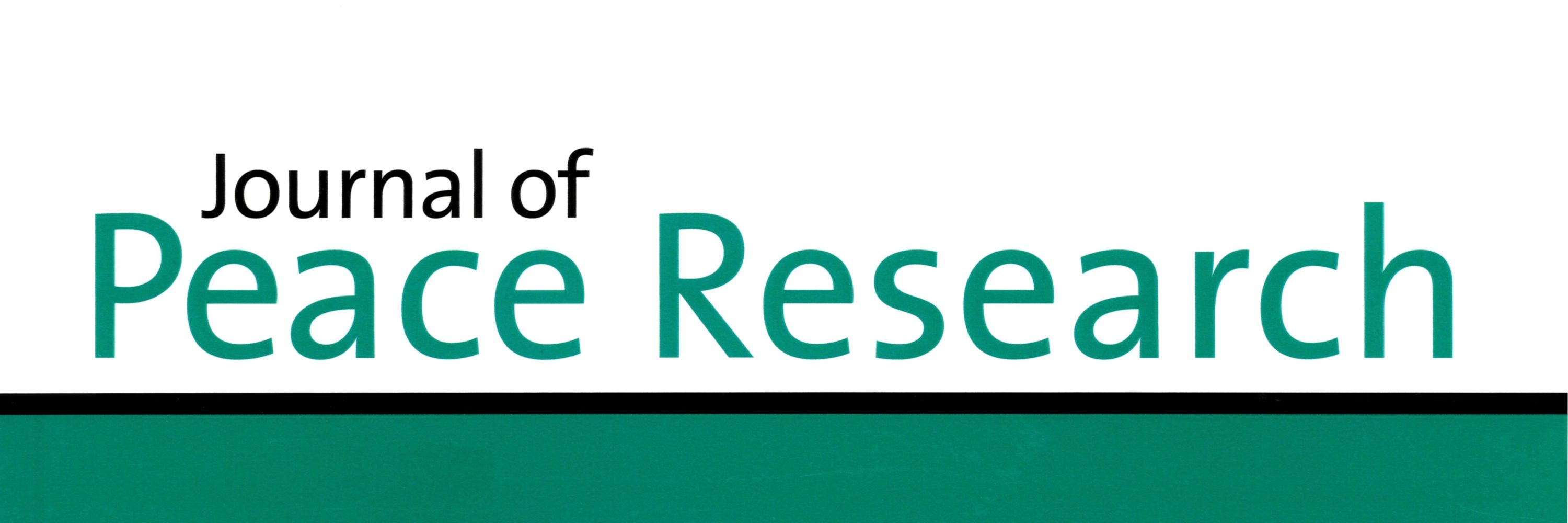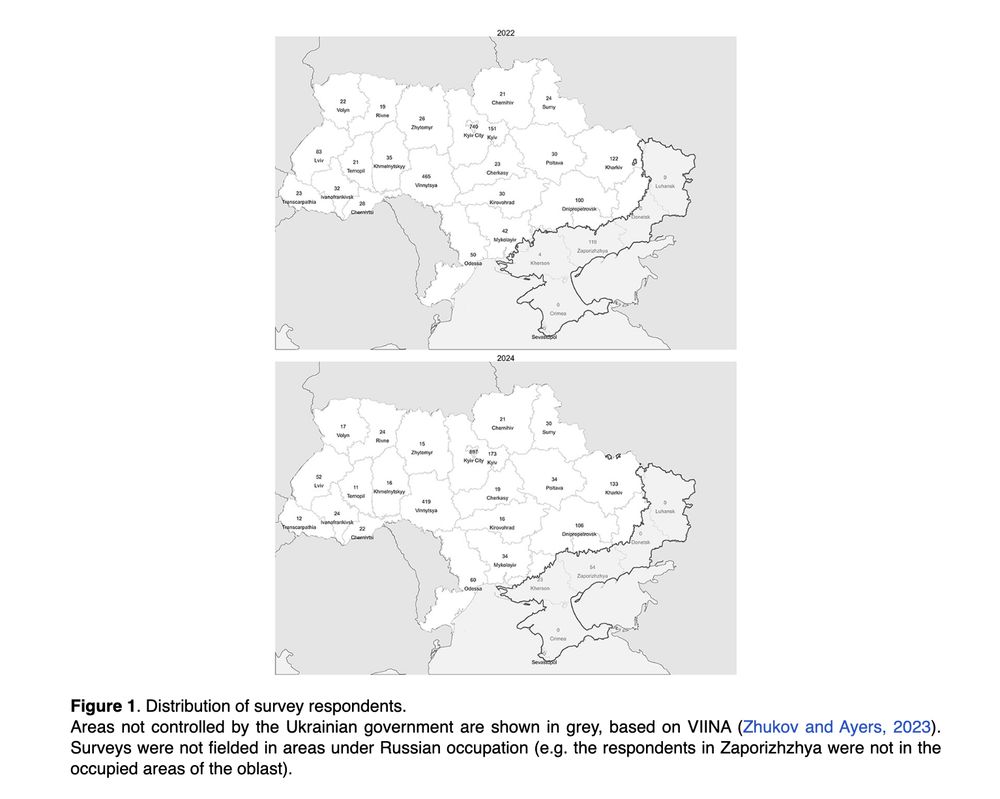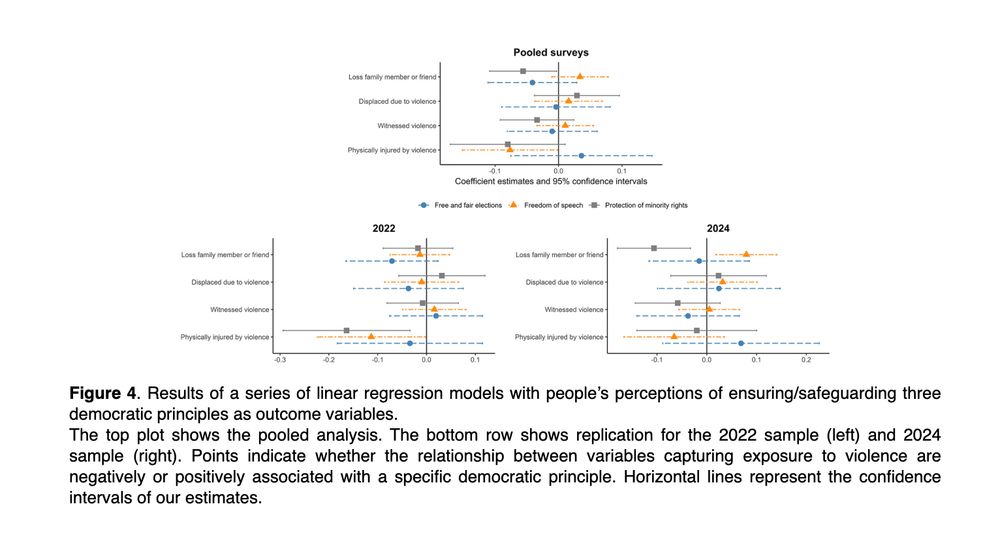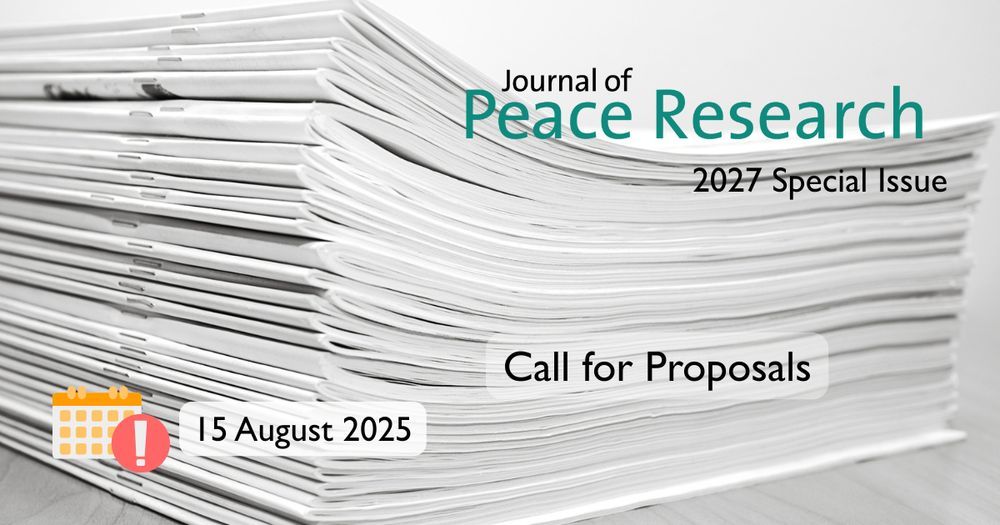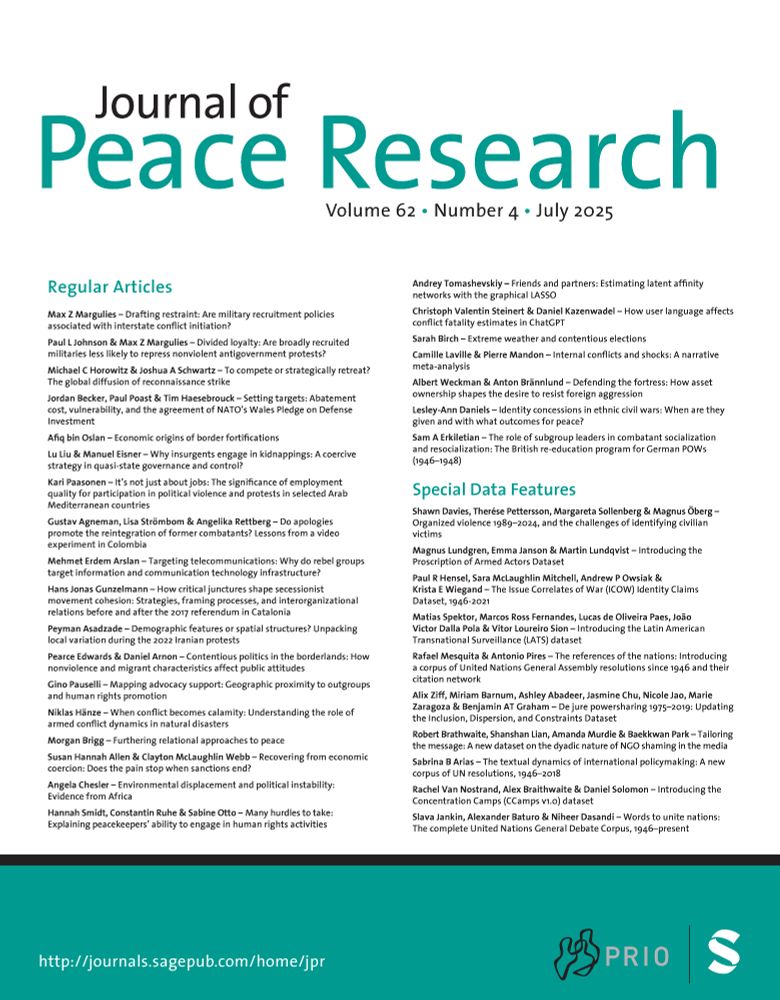Journal of Peace Research
@jpeaceresearch.bsky.social
450 followers
67 following
77 posts
The Journal of Peace Research is an interdisciplinary and international bimonthly journal, covering scholarly work in peace research.
https://www.prio.org/journals/JPR
https://journals.sagepub.com/home/jpr
Posts
Media
Videos
Starter Packs
Pinned
Reposted by Journal of Peace Research
